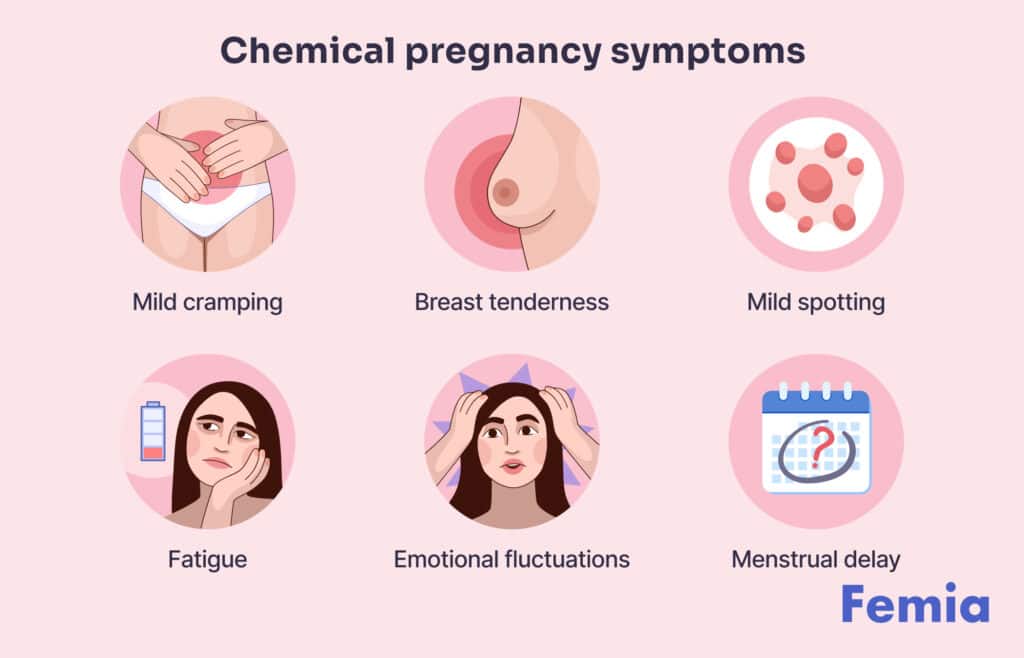What is a Chemical Pregnancy? Early Signs, Causes & Next Steps
Learn what a chemical pregnancy is, its causes, symptoms, and signs at 4 weeks. Understand this early pregnancy loss and how to move forward with expert insights and support.
Understanding a Chemical Pregnancy
A chemical pregnancy is an early miscarriage that occurs before the fifth week of pregnancy. It happens when a fertilized egg implants in the uterus but does not develop properly. This results in a very early loss, often before a woman even realizes she is pregnant.
Planning for pregnancy? Use our Pregnancy Calculator to track your dates and increase your chances of success!
How is a Chemical Pregnancy Different from a Clinical Pregnancy?
A clinical pregnancy is confirmed by an ultrasound showing a gestational sac and fetal heartbeat, while a chemical pregnancy is only detected through a positive pregnancy test followed by a negative one.
What Are the Symptoms of a Chemical Pregnancy?
Many women do not notice a chemical pregnancy because it happens so early. However, common signs include:
Signs of Chemical Pregnancy at 4 Weeks
At around 4 weeks, symptoms might include light bleeding, mild cramps, and the disappearance of pregnancy symptoms like sore breasts or nausea.
Common Signs at 4 Weeks
Causes & Risk Factors of Chemical Pregnancy
A chemical pregnancy is usually caused by chromosomal abnormalities in the fertilized egg. Other risk factors include:
- Age (higher risk for women over 35)
- Hormonal imbalances
- Thyroid disorders
- Uncontrolled diabetes
- Uterine abnormalities
- Lifestyle factors (smoking, excessive alcohol, or stress)
How is a Chemical Pregnancy Diagnosed?
1️⃣ Pregnancy Test
A chemical pregnancy is often detected when a woman gets a faint positive on a home pregnancy test, followed by a negative test a few days later.
2️⃣ Blood hCG Test
Doctors check hCG levels, which rise in early pregnancy. If they drop instead of increasing, it indicates a chemical pregnancy.
3️⃣ Ultrasound
Since a chemical pregnancy happens so early, an ultrasound usually does not detect a gestational sac.
What to Do After a Chemical Pregnancy
Physical Recovery
- The body usually recovers naturally within a few days
- No medical intervention is needed unless complications arise
Emotional Recovery
- Even though it happens early, a chemical pregnancy can be emotionally painful
- Talking to a doctor or counselor may help in coping with the loss
When to Try Again
- Women can try to conceive again in their next cycle unless advised otherwise by a doctor
- Using a pregnancy calculator can help estimate ovulation and conception dates
Track Your Next Pregnancy
Our Pregnancy Calculator helps you:
- • Estimate ovulation dates
- • Calculate conception windows
- • Track pregnancy milestones
- • Plan for important dates
Frequently Asked Questions
Q. Can you prevent a chemical pregnancy?
There is no guaranteed prevention, but a healthy lifestyle and regular medical checkups can help reduce risks.
Q. How soon can you get pregnant again?
Women can usually conceive again immediately after a chemical pregnancy, but it's best to wait until emotionally ready.
Q. Is a chemical pregnancy a real pregnancy?
Yes, it is a real pregnancy, but the embryo does not develop past the early stages.
Final Thoughts
A chemical pregnancy can be confusing and emotionally challenging. While it occurs early, it is still a pregnancy loss. Tracking ovulation and pregnancy through a reliable pregnancy calculator can provide better insights into future pregnancies. If you experience repeated early miscarriages, consult a healthcare provider to explore potential underlying causes.
Plan Your Next Pregnancy
References & Medical Sources
- Mayo Clinic: Chemical Pregnancy Explained
- WebMD: Early Pregnancy Loss
Related Articles
Related Calculators

About this Medical Article
Learn what a chemical pregnancy is, its causes, symptoms, and signs at 4 weeks. Understand this early pregnancy loss and how to move forward with expert insights and support.